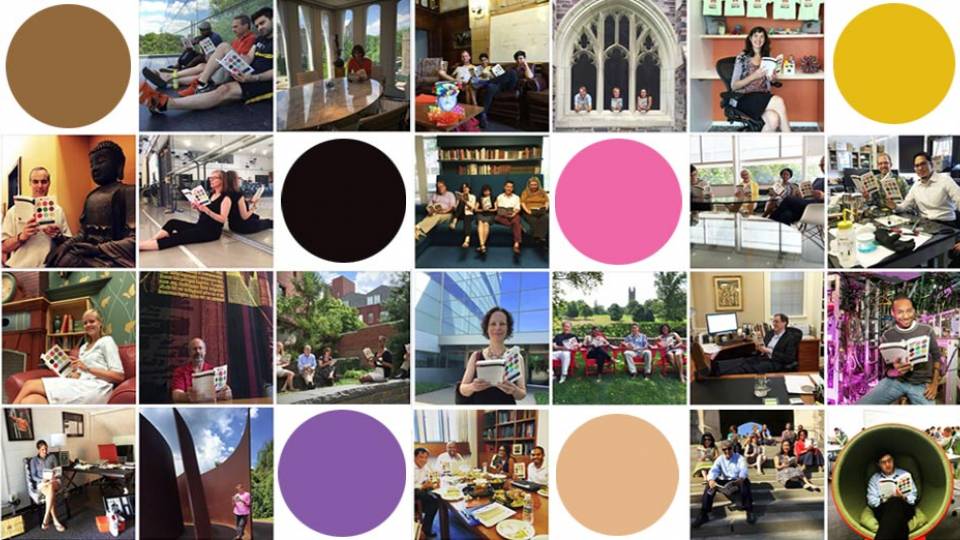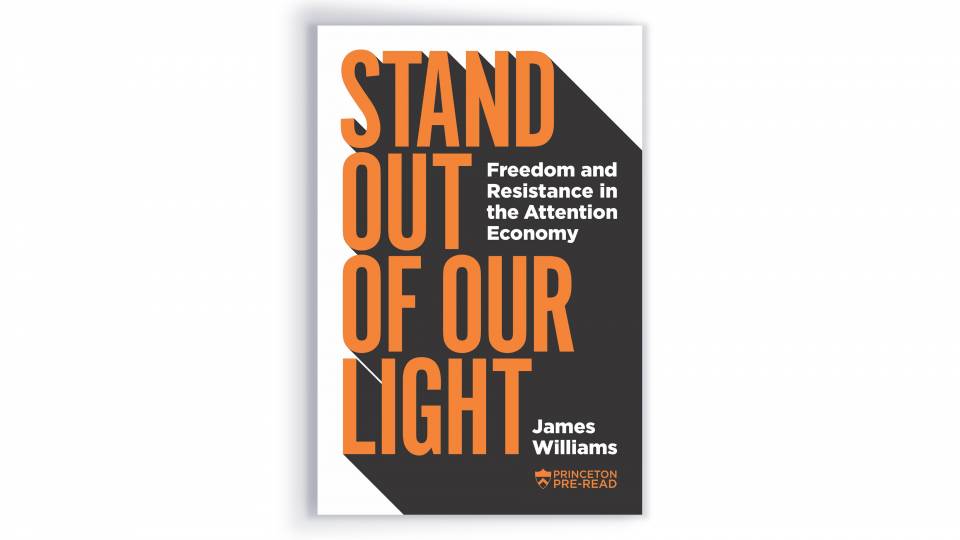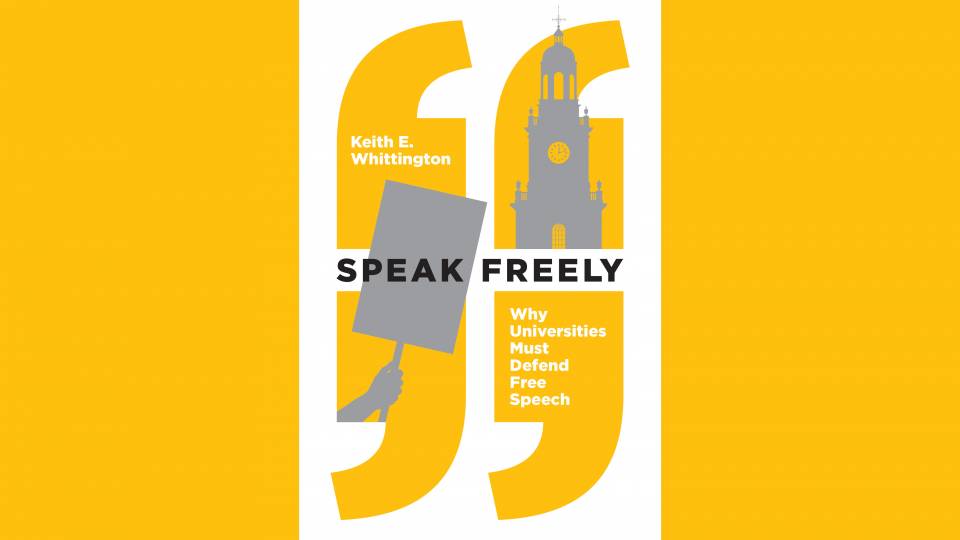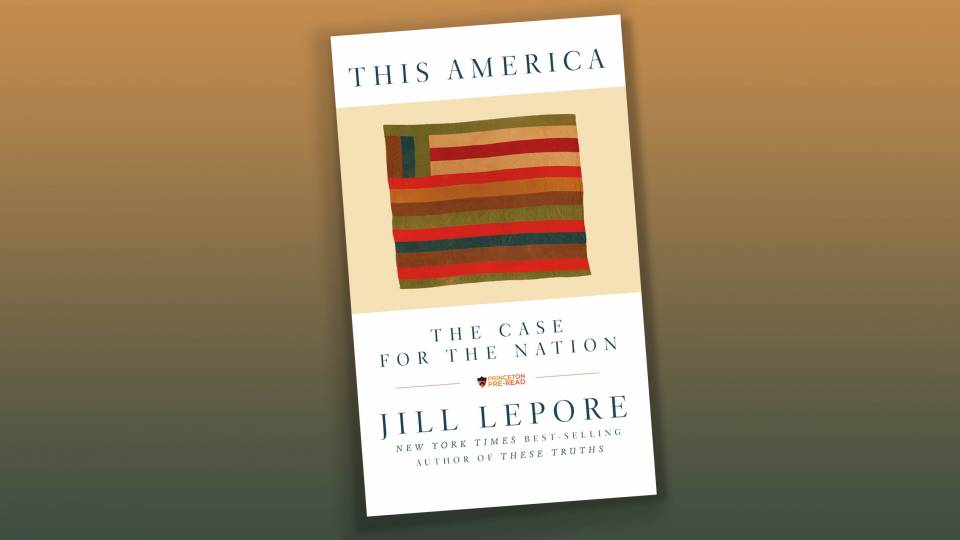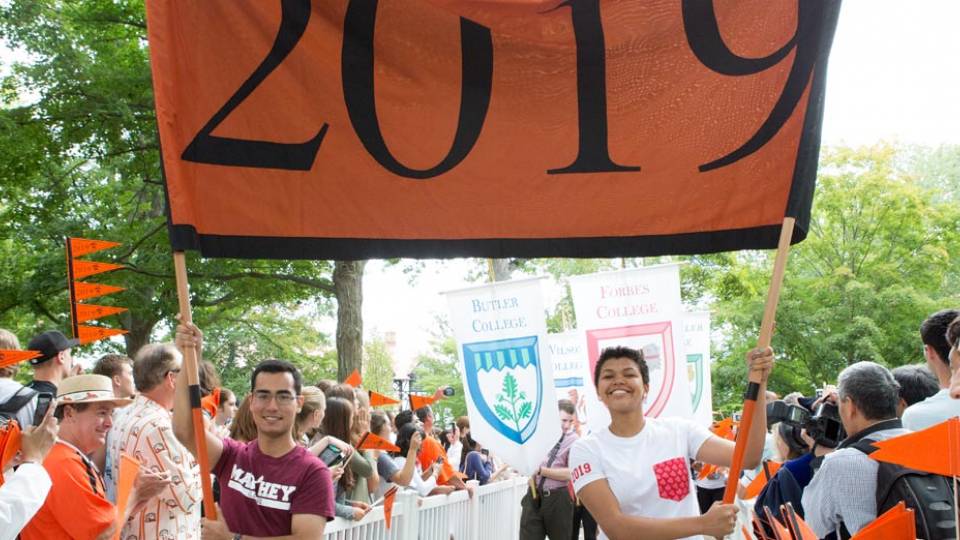Members of Princeton's incoming Class of 2019 will be given their first assignment well before they arrive on campus.
President Christopher L. Eisgruber will ask freshmen to read "Whistling Vivaldi: How Stereotypes Affect Us and What We Can Do" by social psychologist Claude Steele for the third year of the Princeton Pre-read, an introduction to the intellectual life of the University that centers on a book read by members of the freshman class and others in the Princeton community.
This summer, each member of the Class of 2019 will receive a copy of the book. "Whistling Vivaldi" is Steele's first-person account of his research on stereotypes and identity. The book, published in 2010, examines mitigating "stereotype threats" and reshaping American identities.
Eisgruber noted that the whole University community is invited to participate in the Pre-read.
"Events of the past year underscore the need for all of us to think carefully and critically about how stereotypes affect our campus, our society and the world," Eisgruber said. "Because this topic is so important to the University's mission, I will be inviting Princeton's faculty and staff to read 'Whistling Vivaldi' along with this year's incoming freshmen. The University's entire Board of Trustees read the book last month, and some trustees liked it so much that they have purchased copies for their own colleagues."
Said Eisgruber: "This book presents some of the most important social science work done in the last quarter-century, and speaks directly to issues that are important to our nation and our campus community. Professor Steele describes a series of inventive experiments — including some involving Princeton students — that enabled him to develop and test his hypothesis about how negative stereotypes affect us in times of stress. All of us, no matter what our backgrounds may be, will recognize ourselves in some of Professor Steele's examples."
Steele in 2014 became the executive vice chancellor and provost at the University of California-Berkeley, where he also is a professor in the Department of Psychology and the Graduate School of Education. Previously, he was dean of the School of Education at Stanford University. From 2009-11, he served as provost of Columbia University. Steele will come to Princeton during Orientation Week in September to discuss "Whistling Vivaldi" with students.
Dean of the Faculty Deborah Prentice, who is also the Alexander Stewart 1886 Professor of Psychology and Public Affairs, suggested the book to Eisgruber as the Pre-read selection.
"'Whistling Vivaldi' is an important book because it reveals how stereotypes shape our lives, how they channel our goals and aspirations and limit the people we can become," Prentice said. "The book focuses on how it feels to be the target of negative stereotypes and thereby captures an experience highly familiar to members of traditionally stigmatized groups: women, African Americans, student-athletes, people from disadvantaged backgrounds and many others."
Prentice said "Whistling Vivaldi" carries a message that is "both universal and deeply personal," and that the "book's power lies in the conjunction of these elements. Stereotypes are a burden we all bear," she said. "The sooner we can recognize that and learn to throw them off, the better."
Freshmen will have opportunities to discuss the book with Eisgruber in residential colleges and elsewhere on campus throughout the academic year. Eisgruber said he expects the assignment to be enjoyable.
"This is not only an acclaimed, groundbreaking work of social psychology, it is a fun read — akin to an academic detective story," Eisgruber said. "In addition to gaining insights into how social science is done, readers of 'Whistling Vivaldi' will acquire a better understanding for why stereotypes and group identity matter in our society. The book also offers guidance on how to create constructive solutions through a surprisingly simple set of actions and choices that can help to combat the effects of stereotypes."
The previous books Eisgruber assigned for the Pre-read were "The Honor Code: How Moral Revolutions Happen" by Kwame Anthony Appiah, and "Meaning in Life and Why it Matters" by Susan Wolf.
The Pre-read builds on another tradition for freshmen, the Pre-rade, in which incoming freshmen enter campus together through FitzRandolph Gate.
